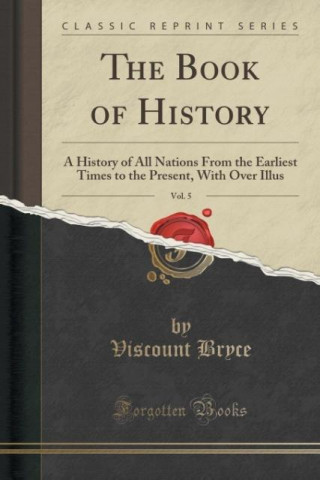
Kód: 12036135
The Book of History, Vol. 5
Autor Viscount Bryce
Excerpt from The Book of History, Vol. 5: A History of All Nations From the Earliest Times to the Present, With Over Illus By far the best known of all Oriental u peoples are the tribes which form the last components of the sec ... celý popis
- Jazyk:
 Angličtina
Angličtina - Vazba: Brožovaná
- Počet stran: 448
Nakladatelství: Forgotten Books, 2015
- Více informací o knize

692 Kč
Dostupnost:
50 % šance Máme informaci, že by titul mohl být dostupný. Na základě vaší objednávky se ho pokusíme do 6 týdnů zajistit.
Máme informaci, že by titul mohl být dostupný. Na základě vaší objednávky se ho pokusíme do 6 týdnů zajistit.Prohledáme celý svět
Mohlo by se vám také líbit
-

Exploring Sentencing Practice in England and Wales
1830 Kč -
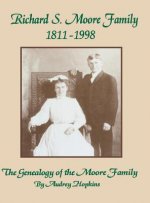
Richard S. Moore Family
1348 Kč -

Home Is Where the Heart Is
446 Kč -

The Prisoner of Zenda
898 Kč -

The Marshmallow Man
312 Kč -

The Miracle of Dunkirk
898 Kč -
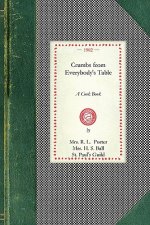
Good Things to Eat, Suggested by Rufus: A Collection of Practical Recipes for Preparing Meat, Game, Fowl, Fish, Puddings, Pastries, Etc.
345 Kč -
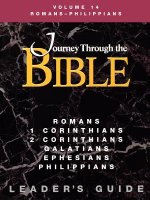
Jttb
367 Kč -

Rain Falls Like Mercy
554 Kč -

Fifi Breaks Her Leg
870 Kč -
![Health Assessment & Physical Examination Package [With Lab Manual] Health Assessment & Physical Examination Package [With Lab Manual]](https://media.libris.to/jacket/jacket_cst.jpg)
Health Assessment & Physical Examination Package [With Lab Manual]
5421 Kč -

Sweetie Ladd's Historic Fort Worth
924 Kč -

Milwaukee Woman's Life on the Left: The Autobiography of Meta Berger
449 Kč -

Malibu
607 Kč
Dárkový poukaz: Radost zaručena
- Darujte poukaz v libovolné hodnotě a my se postaráme o zbytek.
- Poukaz se vztahuje na celou naši nabídku.
- Elektronický poukaz vytisknete z e-mailu a můžete ihned darovat.
- Platnost poukazu je 12 měsíců od data vystavení.
Informovat o naskladnění knihy
Zadejte do formuláře e-mailovou adresu a jakmile knihu naskladníme, zašleme vám o tom zprávu. Pohlídáme vše za vás.
Více informací o knize The Book of History, Vol. 5
Nákupem získáte 69 bodů
 Anotace knihy
Anotace knihy
Excerpt from The Book of History, Vol. 5: A History of All Nations From the Earliest Times to the Present, With Over Illus By far the best known of all Oriental u peoples are the tribes which form the last components of the second great Semitic migration of the Nearer East. These are the Hebrew tribes, whose home, the farthest toward the desert, would in itself indicate that they came as the last of the great "Canaanite" migration, driven on by the precursors of the next, the Aramćan. These are the tribes which combined themselves into the people of Israel, and their neighbours who dwelt still further toward the desert, the Edomites, Moabites, and Ammonites. The Tell el-Amama letters prove the advance of Hebrew tribes in the land as early as the fifteenth century B.C.; one nation in particular comes prominently forward, which expanded from the north - namely, the Amorites. These appear to the Israelites, in the writing which presents the oldest form of their tradition, as the inhabitants from whom they must wrest the land; when the Israelites marched in, the former had already become occupants instead of immigrants. We may thus regard the Israelites as the next stratum after the Amorites, and may place their immigration somewhat ater. The earliest mention of Israel is contained in an inscription of the Pharaoh Meneptah II., about 1200 B.C. Whether that is, however, the tribal federation which we understand by this name, or some forgotten tribe, of which no record is left in Biblical tradition except the name of the collection of tribes banding round it and its sanctuary, must remain at present an unsolved question. Within recent years much progress has been made in the true understanding and interpretation of the books of the Bible which have come down to us, and it has been demonstrated that the Biblical narrative is of a more composite character than had formerly been supposed, and embodies traditions of widely different origin and value. Historical criticism assumes that the Biblical narratives are to be treated as human documents, and are to be submitted to the same critical tests which are applicable to all other records of antiquity. It will, of the course, on the other hand, be maintained that such methods are invalid when applied to the sacred narrative, and that any conclusions reached thereby must be rejected. From that point of view any historic account that deviates from the Biblical narrative will be repudiated. The historical, or, as they should rather be termed, narrative books of the Bible, in the form in which they are now extant, are the work of a late period. The peculiar nature of the use made in antiquity of separate documents allows us to dissect the books into their component parts, so that we are in a position to distinguish the different authorities with some confidence, and to weigh the evidence of one against another. The result of this division of sources, which is most apparent in the Pentateuch, is as follows. Two ancient documentary writings, designated, according to the name used for God by their respective writers, as Elohist and Jehovist, had been combined in very early times. The writing Elohist is indeed the more ancient, because it alone still preserves recollections of the actual conditions of remote antiquity. About the Publisher Forgotten Books publishes hundreds of thousands of rare and classic books. Find more at www.forgottenbooks.com
 Parametry knihy
Parametry knihy
692 Kč
- Plný název: The Book of History, Vol. 5
- Podnázev: A History of All Nations From the Earliest Times to the Present, With Over Illus (Classic Reprint)
- Autor: Viscount Bryce
- Jazyk:
 Angličtina
Angličtina - Vazba: Brožovaná
- Počet stran: 448
- EAN: 9781330353837
- ISBN: 1330353838
- ID: 12036135
- Nakladatelství: Forgotten Books
- Hmotnost: 596 g
- Rozměry: 229 × 152 × 24 mm
- Datum vydání: 24. June 2015
Oblíbené z jiného soudku
-

Dune
262 Kč -

Haunting Adeline
617 Kč -

Berserk Deluxe Volume 2
1093 Kč -

White Nights
90 Kč -

Powerless
259 Kč -

Atomic Habits
339 Kč -

Dune Messiah
178 Kč -

Berserk Deluxe Volume 3
1138 Kč -

One Day
276 Kč -

Berserk Deluxe Volume 1
1112 Kč -

Iron Flame
352 Kč -

Surrounded by Idiots
256 Kč -

Harry Potter and the Prisoner of Azkaban (Minalima Edition)
688 Kč -

Gravity Falls Journal 3
440 Kč -

Heaven Official's Blessing: Tian Guan Ci Fu (Novel) Vol. 1
440 Kč -

The Creative Act
539 Kč -

Dune
213 Kč -

Hunting Adeline
632 Kč -

A Little Life
259 Kč -

Children of Dune
174 Kč -

Heaven Official's Blessing: Tian Guan Ci Fu (Novel) Vol. 2
519 Kč -

Bungo Stray Dogs, Vol. 8 (light novel)
274 Kč -

Percy Jackson and the Olympians 5 Book Paperback Boxed Set
953 Kč -

Solo Leveling, Vol. 1
444 Kč -

The Prisoner's Throne
229 Kč -

Court of Thorns and Roses
254 Kč -

Cry Baby Coloring Book
255 Kč -
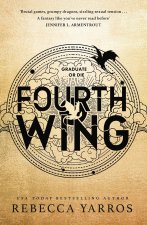
Fourth Wing
351 Kč -

Icebreaker
199 Kč -

Berserk Deluxe Volume 6
1086 Kč -

Avatar, the Last Airbender: The Kyoshi Novels (Box Set)
676 Kč -

The 48 Laws of Power
602 Kč -

House of Leaves
405 Kč -

Twisted Lies
214 Kč -
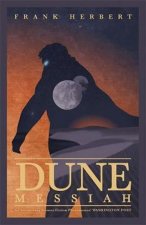
Dune Messiah
277 Kč -

No Longer Human
339 Kč -

48 Laws Of Power
471 Kč -

Twisted Games
214 Kč -

Caraval Paperback Boxed Set
905 Kč -

Solo Leveling, Vol. 2
448 Kč -

Open Circuits
861 Kč -

Berserk Deluxe Volume 5
1115 Kč -

Heaven Official's Blessing: Tian Guan Ci Fu (Novel) Vol. 3
441 Kč -

Berserk Deluxe Volume 4
1165 Kč -

Court of Mist and Fury
221 Kč -

SOLO LEVELING V08
449 Kč -

English File Upper Intermediate Multipack A (4th)
495 Kč -

CHAINSAW MAN V14
249 Kč -

Before the Coffee Gets Cold
209 Kč
Osobní odběr Praha, Brno a 12903 dalších
Copyright ©2008-24 nejlevnejsi-knihy.cz Všechna práva vyhrazenaSoukromíCookies


 Vrácení do měsíce
Vrácení do měsíce 571 999 099 (8-15.30h)
571 999 099 (8-15.30h)